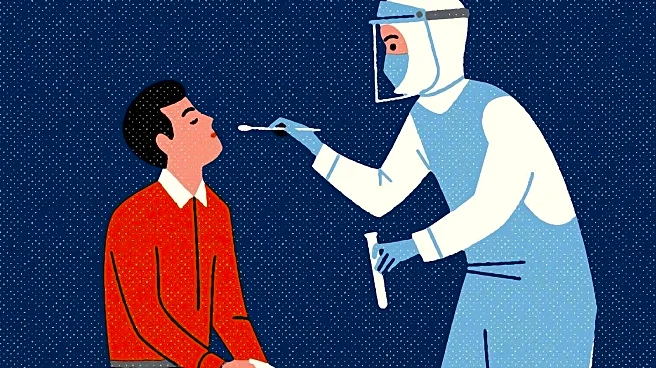What is the story about?
What's Happening?
Trump administration officials are reportedly planning to associate COVID-19 vaccines with the deaths of 25 children, according to sources familiar with the situation. This plan involves presenting these claims to a CDC advisory panel that is considering new vaccine recommendations. The data in question comes from the Vaccine Adverse Event Reporting System (VAERS), which includes unverified reports of vaccine side effects. The CDC has emphasized that VAERS is not designed to determine causality between vaccines and deaths. The move has alarmed career scientists who argue that the vaccines have been extensively studied and that the risks of COVID-19 are being downplayed. The FDA and CDC are conducting reviews of the safety data, which will be discussed at an upcoming CDC Advisory Committee on Immunization Practices meeting.
Why It's Important?
The potential linkage of vaccines to child deaths could significantly impact public trust in COVID-19 vaccination programs, especially among parents. This development comes at a time when the CDC is considering new recommendations for COVID-19 vaccines, which could affect their availability and insurance coverage. The controversy highlights the ongoing debate over vaccine safety and the role of government in public health decisions. If the claims are presented without sufficient scientific backing, it could lead to increased vaccine hesitancy, undermining efforts to control the pandemic. The situation also underscores the tension between political appointees and career scientists in shaping public health policy.
What's Next?
The CDC's Advisory Committee on Immunization Practices is set to meet next week to discuss the new vaccine recommendations. The outcome of this meeting could influence whether insurers cover the vaccines and whether pharmacies and doctors offer them. The presentation of the pediatric deaths claim is not yet finalized, and the methodology behind the analysis remains unclear. The FDA and CDC are expected to continue their safety reviews, and any recommendations will be based on scientific evidence. The meeting's decisions could have far-reaching implications for public health policy and vaccine distribution in the U.S.
















